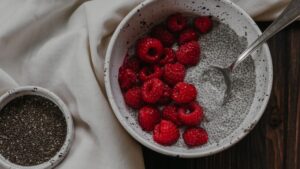Wouldn’t it be nice if you could eat whatever you wanted, blow off working out and still fit in your skinny jeans? While that’s unlikely, it is possible to speed up your metabolism, that little engine in your body that burns calories. As you age, your metabolism slows down, chiefly because you lose around a half pound of muscle each year. That translates into burning about 400 fewer calories each day, which could mean gaining a pound a week.

Burning fat can be difficult for several reasons:
- Genetics: Some people may have a genetic predisposition to carry more body fat, making it harder to lose weight.
- Hormonal imbalances: Hormones such as insulin, cortisol, and thyroid hormones can affect weight gain and fat storage.
- Lack of physical activity: A sedentary lifestyle can lead to weight gain and decreased muscle mass, which can make it harder to burn fat.
- Poor diet: Consuming a diet high in processed foods, sugar, and refined carbohydrates can contribute to weight gain and make it difficult to burn fat.
- Lack of sleep: Sleep plays a crucial role in regulating hormones that control hunger and metabolism, a lack of sleep can disrupt these hormones and make it harder to burn fat.
- Stress: Chronic stress can lead to the release of the hormone cortisol which can cause weight gain, especially around the abdominal area, and make it harder to burn fat.
- Medical conditions: Some medical conditions, such as polycystic ovary syndrome (PCOS) and hypothyroidism, can make it difficult to burn fat.
It’s important to note that burning fat requires a combination of a healthy diet, regular exercise, and a lifestyle that promotes healthy habits. It’s also important to consult a healthcare professional before starting any weight-loss program.
But there’s plenty you can do to rev your fat-burning furnace back up again.
- Eat a high-protein diet
- Avoid sugary drinks and fruit juice and stock up on green tea
- Drink enough water
- Eat fiber-rich foods
- Exercise regularly, including both cardio and strength training
- Monitor your food intake using a calorie-tracking app
- Avoid processed foods
- Eat more whole foods
- Incorporate high-intensity interval training (HIIT) into your workout routine
- Get enough sleep
- Manage stress through meditation or yoga
- Cut back on refined carbs
- Use a smaller plate to control portion sizes
- Try intermittent fasting
- Avoid eating late at night
- Cook your own meals at home
- Eat more healthy fats, such as those found in olive oil and avocado
- Take a multivitamin and mineral supplement
- Try a fat-burning supplement, such as green tea extract or CLA
- Get professional help from a dietitian or personal trainer
- Avoid eating out at restaurants
- Avoid consuming too many added sugars and artificial sweeteners
- Add more vegetables to your diet
- Try a low-carb diet
- Maintain a consistent exercise routine and avoid skipping workouts.


